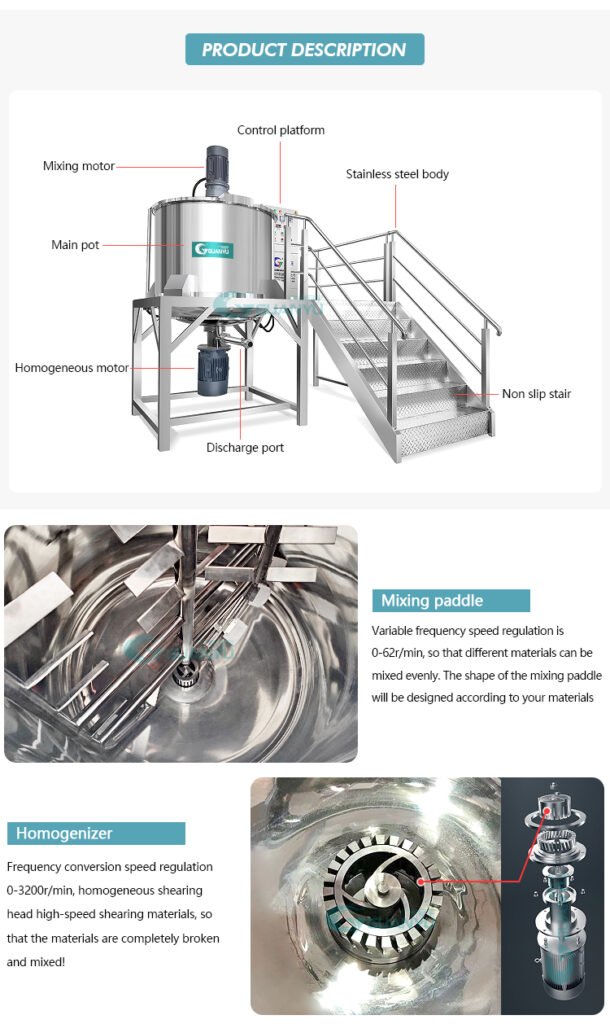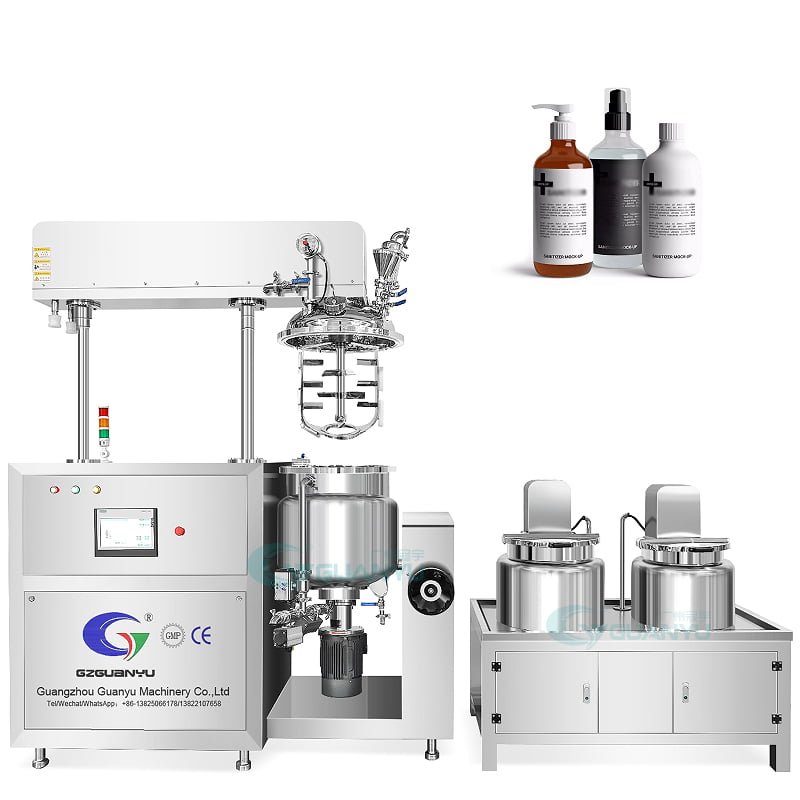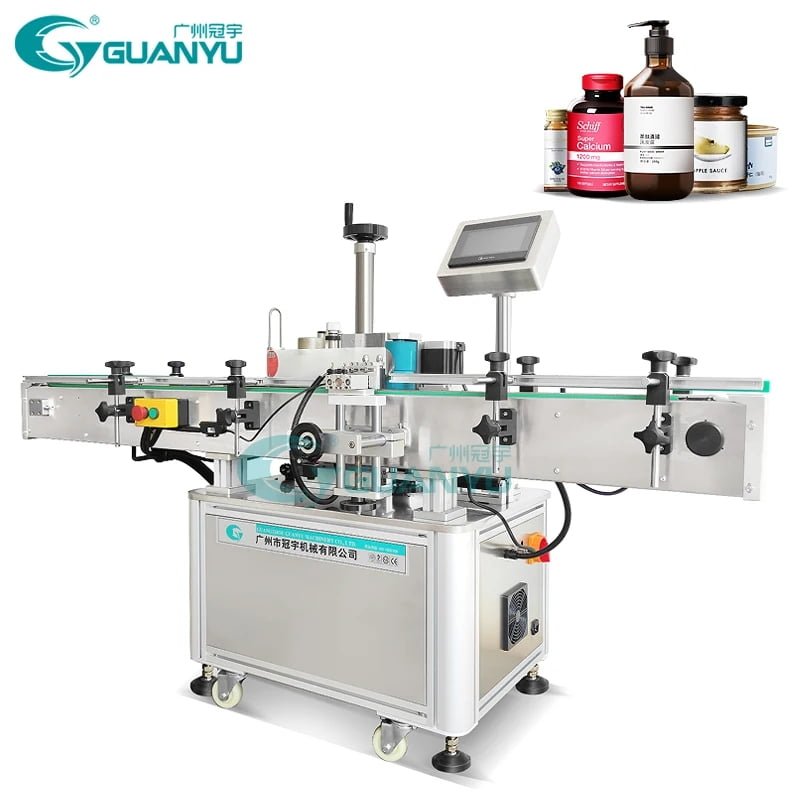แชมพูล้างรถถือเป็นผลิตภัณฑ์สำคัญในอุตสาหกรรมยานยนต์, ออกแบบมาเพื่อทำความสะอาดและปกป้องยานพาหนะอย่างมีประสิทธิภาพพร้อมทั้งอ่อนโยนต่อพื้นผิว. การผลิตแชมพูเหล่านี้จำเป็นต้องมีการผสมและทำให้ส่วนผสมหลายชนิดเป็นเนื้อเดียวกันอย่างแม่นยำเพื่อสร้างความสม่ำเสมอ, มั่นคง, และผลิตภัณฑ์ที่มีประสิทธิภาพ. One of the most critical tools in this manufacturing process is the เครื่องผสมโฮโมจีไนเซอร์, also known as the ถังผสม หรือ blending vessel. Homogenizer mixers play a pivotal role in ensuring that car wash shampoos are properly formulated, consistent in quality, and efficient in their cleaning capabilities.
ในบทความนี้, we will explore the role of homogenizer mixers in car wash shampoo production, from ingredient blending to ensuring product consistency. We will delve into the technical aspects of these mixers, their various functions in the production process, and how they contribute to making high-quality car shampoos.


The Importance of Homogenization in Car Wash Shampoo Production
Car wash shampoos are formulated with a variety of ingredients, each serving a specific purpose. เหล่านี้ได้แก่:
- น้ำ – The primary solvent in most shampoos.
- สารลดแรงตึงผิว – These compounds reduce surface tension, allowing the shampoo to lift and remove dirt, grease, and grime.
- สารเพิ่มความหนา – Used to control the viscosity of the product, ensuring that it has the right consistency for application.
- Preservatives – Prevent microbial growth to increase the shelf life of the shampoo.
- Fragrances and Dyes – Provide pleasant scents and appealing colors to the final product.
- pH Adjusters – Ensure the shampoo is gentle on car surfaces by maintaining the right pH balance.
Homogenization is crucial because it ensures that these ingredients are evenly distributed throughout the product. If any ingredient is not properly dispersed or dissolved, the final product may be ineffective, unstable, or prone to separating over time. Homogenizer mixers excel at creating a uniform mixture, breaking down larger particles or immiscible liquids (เช่นน้ำมัน) into smaller, more stable droplets that can be thoroughly mixed with the water and other components.
Key Functions of Homogenizer Mixers in Shampoo Production
Homogenizer mixers serve several key functions in the production of car wash shampoos. ด้านล่าง, we’ll discuss each of these functions in detail.
1. Efficient Blending of Ingredients
The primary function of a homogenizer mixer is to blend various liquid and solid ingredients uniformly. In car wash shampoo production, water is typically used as the base, and surfactants, เครื่องทำให้ข้น, and other additives are mixed into it. A homogenizer mixer ensures that all these ingredients are evenly distributed throughout the solution.
Due to the high shear forces created by the homogenizer, any lumps or clumps of thickeners or surfactants are broken down and dispersed into the mixture. This creates a smooth, even texture, which is important for the functionality and appearance of the shampoo. เช่น, thickeners may not dissolve readily in water at room temperature, but with the right mixing, they can be properly incorporated into the solution.
2. การลดขนาดอนุภาค
In many cases, car wash shampoos contain ingredients that do not naturally dissolve in water or other solvents, such as oils or silicone-based compounds. Homogenizer mixers are capable of reducing the particle size of these ingredients to the point where they become small enough to be suspended in the solution.
By applying high-pressure shear forces, the mixer breaks down large particles and droplets into smaller, more stable ones. This ensures that these ingredients are finely dispersed and won’t separate out over time. Properly dispersed particles improve the shampoo’s cleaning performance and stability, ensuring consistent results during use.
3. Control Over Viscosity and Texture
Homogenizer mixers also play a crucial role in controlling the viscosity and texture of the car wash shampoo. A well-formulated car shampoo must have the right thickness—too thin, and it may be difficult to apply evenly; too thick, and it may be hard to rinse off.
The homogenization process can be adjusted to control the product’s viscosity. เช่น, thickeners like sodium chloride (salt) or xanthan gum can be added to the mixture, and the homogenizer will ensure that they are evenly distributed throughout the solution. This prevents clumping and ensures that the shampoo has the desired consistency.
4. Temperature Control and Heating
In many cases, certain ingredients in car wash shampoos, such as waxes or certain surfactants, may require heating to properly dissolve and blend with the other components. Homogenizer mixers often come equipped with heating and cooling functions that allow precise temperature control during the production process.
The heating function is particularly useful for dissolving solid ingredients or ensuring that viscous ingredients like waxes are adequately melted before being mixed into the shampoo. Once these components are thoroughly blended, the cooling function can help stabilize the mixture, ensuring that it maintains its structure and consistency once it cools down to room temperature.
5. pH Adjustment and Stabilization
Homogenizer mixers can also assist in maintaining the pH balance of the car wash shampoo. Since car surfaces, particularly paint, can be sensitive to pH levels, it is essential that the shampoo remains within a neutral pH range (typically between 6 และ 8).
Homogenizers ensure that pH adjusters, such as citric acid or sodium hydroxide, are evenly distributed throughout the solution. This ensures that the entire batch of shampoo maintains the correct pH, which not only protects the vehicle but also enhances the performance of the surfactants.
6. Foam and Bubble Management
One of the challenges in mixing car wash shampoos is the production of foam or bubbles during the mixing process, especially when dealing with surfactants. Too much foam can interfere with the mixing process and reduce the efficiency of the homogenizer.
To combat this, many homogenizer mixers are designed with foam reduction features or are operated under vacuum to remove excess air from the mixture. This minimizes foam production and ensures that the final product has a smooth, bubble-free texture.


Benefits of Homogenizer Mixers in Car Wash Shampoo Production
Using homogenizer mixers in the production of car wash shampoos offers several key benefits, รวมทั้ง:
- ความสม่ำเสมอ: Homogenizers ensure that every batch of shampoo has the same composition, ensuring uniform performance and quality.
- Improved Product Stability: By reducing particle size and evenly dispersing ingredients, homogenizers prevent separation and extend the shelf life of the shampoo.
- Enhanced Cleaning Performance: Proper mixing ensures that the surfactants and other cleaning agents are evenly distributed, leading to more effective dirt and grime removal.
- Reduced Production Time: Homogenizer mixers are highly efficient, reducing the time it takes to mix and blend ingredients compared to traditional mixing methods.
- ความอเนกประสงค์: These mixers can handle a wide range of viscosities and ingredients, making them suitable for producing various types of car care products, from shampoos to waxes and conditioners.
Homogenizer mixers are essential for creating a uniform mixture of ingredients in car wash shampoo production, which is vital for product consistency and effectiveness. To further improve sustainability in the manufacturing process, many companies are now utilizing waste sorting machines to manage and recycle waste materials generated during production. By effectively separating and processing waste, these machines help manufacturers reduce their environmental footprint and support sustainable production practices. To enhance overall manufacturing efficiency, companies often explore a variety of advanced manufacturing solutions that support different stages of production.
บทสรุป
In the production of car wash shampoos, homogenizer mixers play an indispensable role. From ensuring the uniform distribution of ingredients to controlling viscosity and particle size, these machines are essential for creating high-quality, effective products. Their ability to blend, ทำให้เป็นเนื้อเดียวกัน, and stabilize complex formulations makes them a cornerstone of the car wash shampoo manufacturing process.
For manufacturers looking to improve the consistency and quality of their car care products, investing in a high-quality homogenizer mixer is a crucial step. The benefits in terms of product performance, ความมั่นคง, and production efficiency are significant, making these mixers a valuable asset in the competitive car care industry.


Looking for a Casino Plus voucher? Yeah, me too! casinoplusvoucher seems to have some info. Worth a look if you’re trying to score some extra credit: casinoplusvoucher
Pak777pkgame! It’s got a specific vibe. If that’s your jam, then you’ll probably dig this. Seems legit enough and the website is active. Dive in and explore! Link is: pak777pkgame
บทความของคุณช่วยฉันได้มาก, มีเนื้อหาที่เกี่ยวข้องเพิ่มเติมอีกไหม? ขอบคุณ!